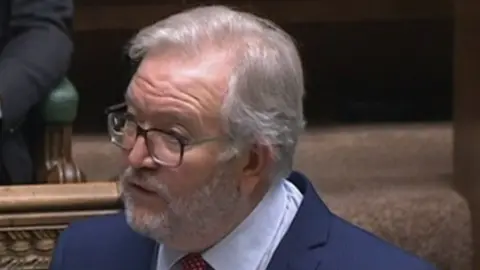Peter Dowd MP calls for four-day working week without pay cut
 BBC
BBCEmployees should be allowed to only work four days a week but still receive full pay, a Labour MP has suggested.
Outlining his plans in the House of Commons, Bootle MP Peter Dowd said it was "time for change" and the working week should be capped at 32 hours.
He said the movement for a shorter working week was "growing in strength".
But Sir Christopher Chope, Conservative MP for Christchurch in Dorset, said he wanted to put on record his strong opposition to Mr Dowd's bill.
Under the 1998 Working Time Regulations Act, the maximum working week is currently 48 hours.
Mr Dowd's bill includes a clause which would see anybody working more than 32 hours being paid an overtime rate of a time-and-a-half.
The Merseyside MP said: "All the evidence shows a four-day week with no loss of pay would be good for the economy, good for workers and good for the environment."
'Hand grenade'
But Sir Christopher said: "Effectively what he is saying [is] that everybody who is working more than 32 hours a week would be prevented from doing so in the future under the provisions of his bill.
"If ever one could think of a hand grenade being thrown into the economy, that is probably a really good example of it."
He added that while he believed "everybody should have the right to bring in whatever bill they want to", he wanted to put on record his strong opposition to "everything contained" in it.
In the UK, more than 70 companies and 3,300 workers are currently taking part in the world's biggest four-day week pilot, with no accompanying loss of pay.
At the halfway point, 86% of the companies taking part said they were likely to consider retaining the policy after the trial.
In September, South Cambridgeshire District Council became the first UK local authority to move ahead with a four-day week pilot, again with no pay cut.

Why not follow BBC North West on Facebook, Twitter and Instagram? You can also send story ideas to [email protected]
